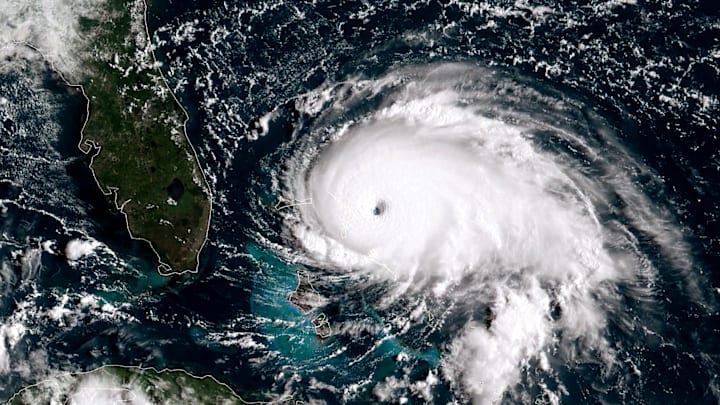The National Oceanic and Atmospheric Administration (NOAA) predicted a busier-than-normal hurricane season in 2024—and we’ve already seen plenty of evidence of an above-average year.
In the chaos of preparing for the storms to hit land, we would also have to deal with the confusion of telling them apart, if it weren’t for a naming system that’s been used for decades.
Prior to the 1950s, Atlantic hurricanes were identified simply by the year and the order in which they occurred. This system was imperfect, however, especially when meteorologists and the media had to keep tabs on multiple storms at the same time. So in 1953, the U.S. began using a list of female names ordered alphabetically to better clarify which hurricanes were coming when. Male names were assigned to storms in 1978, and in 1979 the coed database of names we now use to track Atlantic storms was officially adopted.
The list includes 21 names for each year, with names for the letters Q, U, X, Y, and Z missing from the lineup. For years when more than 21 storms appear, letters from the Greek alphabet are used to label the extras.
The catalog has enough names to last six hurricane seasons, after which it gets recycled. When hurricanes are especially fatal or destructive, those names may be retired. In those cases, the World Meteorological Organization convenes to decide on a new name to fill the empty slot. Andrew, Katrina, Ike, and Sandy are a handful of names that have lost their place on the list in recent decades. The World Meteorological Organization retired at least one name each year between 2015 and 2022.
While the organization doesn’t take suggestions, it does make the updated list available for the public to see years in advance.
Have you got a Big Question you'd like us to answer? If so, let us know by emailing us at bigquestions@mentalfloss.com.
Discover More Facts About Weather and Climate:
A version of this story was published in 2020; it has been updated for 2024.
